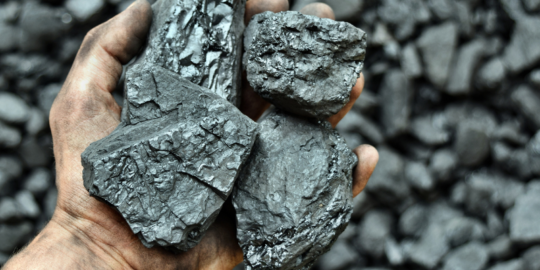The Ripple Effect: Why Greenland is at the Center of Global Geopolitics
When Donald Trump suggested buying Greenland—again—I couldn’t help but imagine the negotiation: ‘Throw in an aurora borealis or two, and we’ve got a deal.’ But jokes aside, Greenland has become a geopolitical hotspot for reasons far more serious than its stunning scenery.
To help unpack why the world is suddenly so interested in an island with more ice than inhabitants, I sat down with The Ripple Effect’s co-host, Nicholaus Rohleder, who, humbly, is the founder of Climate Commodities, a Visiting Fellow with the National Security Institute, an Adjunct Professor at Penn, and a Forbes 30 Under 30 honoree. (Meanwhile, I’m just over here trying to make sure my microphone’s working properly.)
In the debut episode of The Ripple Effect, Nicholaus and I discussed why Trump’s interest in Greenland has resurfaced in global headlines as a potential focal point of international competition. Spoiler: It’s got everything to do with minerals, climate change, and some very frosty politics.
In recent news, Donald Trump’s renewed interest in acquiring Greenland has stirred debate about its value and the potential ripple effects of such a move. While the notion may seem far-fetched to some, the reality beneath the surface reveals a confluence of factors—strategic, economic, and environmental—that make Greenland a highly coveted asset in the 21st century.
Greenland’s Strategic Importance
From a military perspective, Greenland’s Arctic location is critical for missile defense systems and Arctic security. As Nicholaus pointed out, the Arctic is increasingly becoming a theater for great power competition, with countries like Russia and China investing heavily in Arctic infrastructure, including icebreaker fleets. Comparatively, the U.S. and NATO have lagged in Arctic readiness, highlighting the growing need for collective action among Western nations.
Beyond military strategy, Greenland is home to an estimated 25 out of 34 critical raw materials classified by the EU, making it a potential game-changer in addressing the West’s critical mineral deficits. These materials are essential for technologies ranging from renewable energy to defense systems, and their strategic importance cannot be overstated.
Climate Change and the Arctic Opportunity
Climate change has further elevated Greenland’s importance. Melting ice is opening new shipping lanes, creating previously inaccessible resource extraction opportunities. Nicholaus emphasized that these changes are not only physical but also geopolitical, as nations compete to establish a foothold in this emerging frontier.
However, with opportunity comes responsibility. Greenland’s population of just 56,000 includes indigenous communities with traditional lifestyles deeply connected to the land. Any large-scale resource exploitation must consider the fragile balance of local ecosystems and the socioeconomic impact on Greenland’s residents.
The Role of Denmark and Global Alliances
As a self-governing territory within the Danish Kingdom, Greenland manages its domestic affairs, including natural resource exploration. However, Denmark retains control over defense and foreign policy. Nicholaus highlighted the challenges Denmark faces in playing a more proactive role in Arctic security, especially as other global powers increase their presence in the region.
Meanwhile, alliances among the U.S., Canada, and European nations are critical to counterbalance the growing influence of Russia and China in the Arctic. The delicate balance of collective action, economic partnerships, and sovereignty will likely define the future of Greenland’s role on the global stage.
The Ripple Effect of U.S. Expansionism
Trump’s interest in acquiring Greenland raises broader questions about U.S. strategy. A shift toward territorial expansion could alienate key European allies and strain relationships within NATO. At the same time, it highlights the urgency of addressing the West’s reliance on critical minerals from China, especially in the event of prolonged geopolitical conflicts and China’s early December announcement of banning the export of several rare minerals to the U.S..
The implications extend beyond strategy and resources. A U.S. attempt to assert control over Greenland would echo historical imperialism, potentially fracturing alliances with nations that have experienced colonial exploitation. This dynamic could push some countries toward closer ties with China or Russia, further complicating global power dynamics.
What’s Next for Greenland?
After speaking with Nicholaus, it became abundantly clear that my negotiation skills would be entirely futile when it comes to Greenland. But if you’re curious about how minerals, icebreakers, and geopolitics are shaping our future, tune in to The Ripple Effect. And while Greenland might not be on the market, the insights you’ll gain are absolutely priceless. And as our conversation highlighted, The ripple effect on this issue is profound.
Watch the full episode of The Ripple Effect below:
What do you think about Greenland’s evolving role in global geopolitics? Interested in joining the conversation or highlighting The Ripple Effect you’ve spotted, reach out to me: liz@dealgateway.com.



